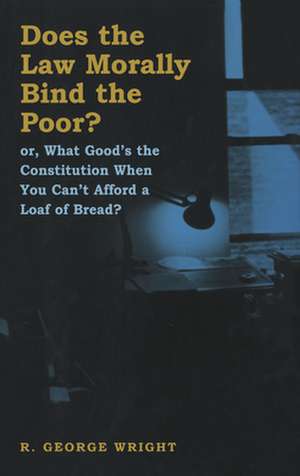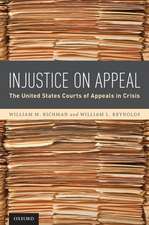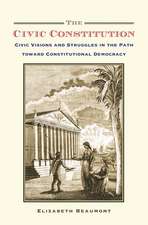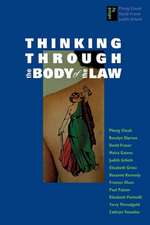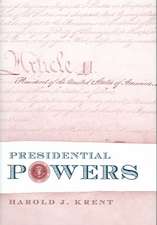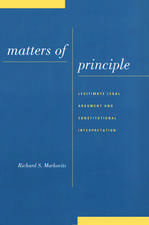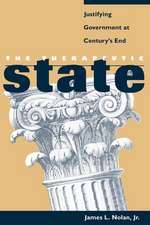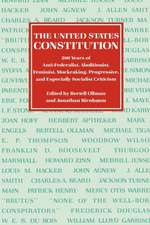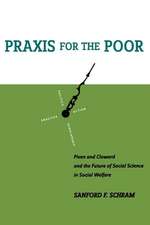Does the Law Morally Bind the Poor? – Or What Good`s the Constitution When You Can`t Buy a Loaf of Bread?
Autor R. George Wrighten Limba Engleză Hardback – 31 mar 1996
Preț: 522.17 lei
Preț vechi: 678.13 lei
-23% Nou
Puncte Express: 783
Preț estimativ în valută:
99.92€ • 104.12$ • 82.73£
99.92€ • 104.12$ • 82.73£
Carte tipărită la comandă
Livrare economică 03-17 aprilie
Preluare comenzi: 021 569.72.76
Specificații
ISBN-13: 9780814792940
ISBN-10: 0814792944
Pagini: 228
Dimensiuni: 152 x 229 x 15 mm
Greutate: 0.38 kg
Ediția:New.
Editura: MI – New York University
ISBN-10: 0814792944
Pagini: 228
Dimensiuni: 152 x 229 x 15 mm
Greutate: 0.38 kg
Ediția:New.
Editura: MI – New York University
Recenzii
"This is a book that can help us think through the terrible choices created in a highly stratified society where an increasing number of people cannot legally obtain even the basic necessities of life. Can we, like Thomas Aquinas, accept the idea that stealing bread under such circumstances is no crime or must we live in a society where equal or greater punishment is imposed on the desperate?"
Gary Orfield
Harvard University
"This is a book that can help us think through the terrible choices created in a highly stratified society where an increasing number of people cannot legally obtain even the basic necessities of life. Can we, like Thomas Aquinas, accept the idea that stealing bread under such circumstances is no crime or must we live in a society where equal or greater punishment is imposed on the desperate?" --Gary Orfield Harvard University
Gary Orfield
Harvard University
"This is a book that can help us think through the terrible choices created in a highly stratified society where an increasing number of people cannot legally obtain even the basic necessities of life. Can we, like Thomas Aquinas, accept the idea that stealing bread under such circumstances is no crime or must we live in a society where equal or greater punishment is imposed on the desperate?" --Gary Orfield Harvard University
Textul de pe ultima copertă
Imagine you return home one day to find the cords on your window sashes gone. A number of reasons for their disappearance might occur to you. Most of us, however, would not immediately consider that intravenous drug users had taken the cords for the purpose of fixing. Yet, for some, this possibility would seem quite likely. Or consider the horror we feel when we learn of a crime such as that committed by Robert Alton Harris, who commandeered a car, killed the two teenage boys in it, and then finished what was left of their lunch. What we don't consider in our reaction to the depravity of this act is that, whether we morally blame him or not, Harris has led a life almost unimaginably different from our own in crucial respects. In this book R. George Wright traces the most basic legal and political implications of life in circumstances far bleaker than those with which most of us are familiar. While the poor live in the same world as the rest of us, he argues, their world is crucially different. The law, however, fails to recognize this difference. By not taking proper account of the circumstances of the severely deprived, we often make assumptions that violate logic and fairness. Wright's analysis explores the Constitution as it is applied to the poor in our society. He then argues that the law is inconsistent in excusing the trespasses of persons fleeing unexpected storms but not those of the involuntarily homeless. He persuasively concludes that we can reject crude environmental determinism withot holding the most deprived to unreasonable standards.
